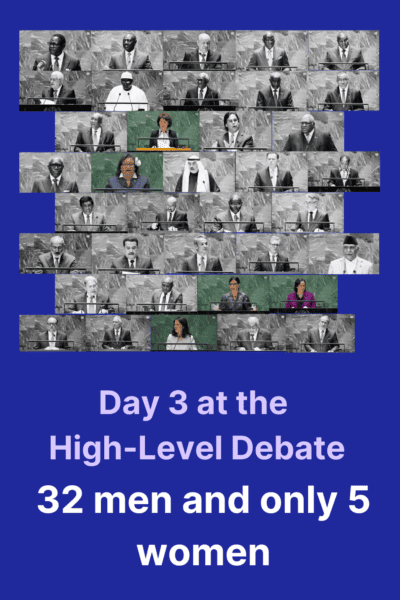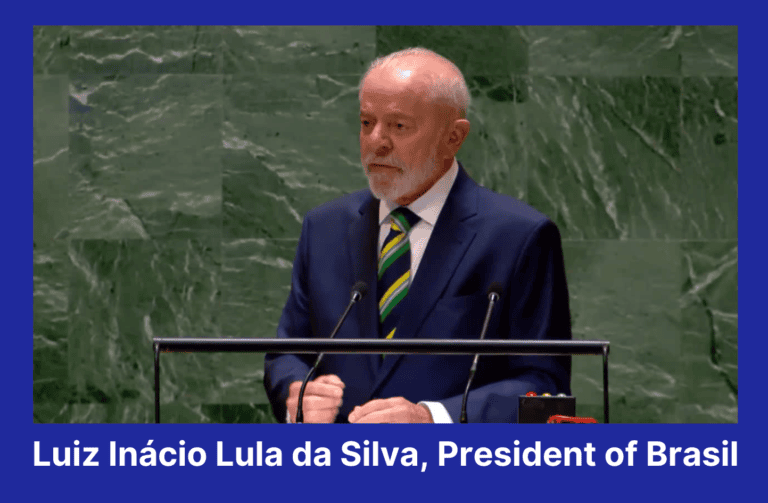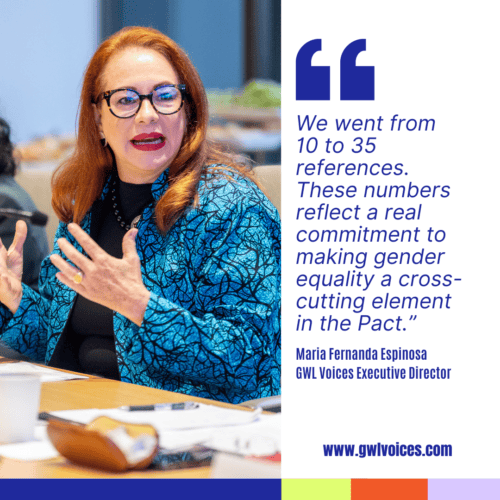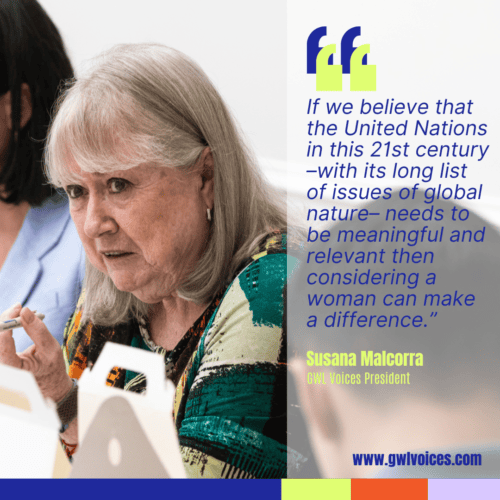UNGA 79: A Call to Gender Equality and Leadership

Share
As the 79th session of the United Nations General Assembly (UNGA 79) concluded, gender equality—particularly in leadership at the highest levels of international governance—emerged as a central theme. The session showcased both progress and the challenges that remain in achieving equitable gender representation at the UN, with significant implications for the future role of the Secretary-General.
Gender Parity: A Distant Reality
One of the stark realities highlighted at UNGA79 was the underrepresentation of women leaders. Out of 193 countries, only 20 women addressed the General Assembly—an unsettling statistic in an era where gender parity is a global priority. Despite increasing calls for equal representation, systemic barriers continue to prevent capable women from accessing leadership positions. This imbalance underscores the importance of campaigns like GWL Voices’ Madam Secretary-General, which advocates for the UN’s first female leader in 2026.
Moreover, this problem goes even to the General Assembly, since in 79 years of history only four women have been president. This brutal fact highlighted on GWL Voices report “Women in Multilateralism” was even more obvious during the meeting of the United Nations Presidents of the General Assembly in which GWL Voices Executive Director, María Fernanda Espinosa stood as the only woman in the room sending a strong reminder on how far we are from achieving true gender equality in global leadership.

Shifting Geopolitical Support: Brazil, France, and Spain Lead the Way
At UNGA79, a significant development was the growing international support for a female Secretary-General, with Brazil, France, and Spain signaling their favorability toward nominating a woman in the 2026 election. Brazil’s President, Luiz Inácio Lula da Silva, has emphasized UN reform, advocating for greater female representation in leadership. Spain’s Prime Minister, Pedro Sánchez, echoed this sentiment, reinforcing Europe’s commitment to gender parity. Additionally, France expressed support for a female Secretary-General during an event on Feminist Foreign Policy, organized by Spain with the support of Mexico and Rwanda.
This growing support enhances the prospects for GWL Voices’ campaign and signals a broader shift in global politics. Diverse leadership is increasingly recognized not just as a moral imperative but as essential for tackling complex global challenges, from climate change to humanitarian crises.

Broader Implications for Multilateralism
The focus on gender equality and leadership at UNGA79 also intersected with broader discussions about multilateralism and the expectations following the Declaration on the Pact for the Future. Although the final version of the Pact is weaker in several areas compared to previous drafts, key language on women and gender equality was preserved. For example, the term “gender” appeared 10 times in Draft Zero and 35 times in the final version.
“These numbers reflect a real commitment to making gender equality a cross-cutting element in the Pact,” said GWL Voices Executive Director, María Fernanda Espinosa, during the GWL Voices event “Translating Gender Equality and Women’s Right Commitments intro Transformative Action”.
Espinosa, played a pivotal role in these discussions. The organization is proud to have successfully included a reference in Chapter 5 of the Pact: “the regrettable fact that there has never been a woman Secretary-General, and we encourage Member States to consider nominating women as candidates.” This clear call to action sets the agenda for member states as the 2026 election approaches.
A female Secretary-General would not only be a symbolic victory for gender equality but also a practical step toward reshaping global governance to be more representative and effective. GWL Voices, through its advocacy and partnerships, has been at the forefront of this conversation. The push for a Madam Secretary-General goes beyond breaking a glass ceiling—it seeks to establish a leadership framework that incorporates diverse perspectives and experiences, essential for addressing the world’s most pressing issues.
“If we believe that the United Nations in this 21st century –with its long list of issues of global nature– needs to be meaningful and relevant then considering a woman can make a difference,” said GWL Voices president, Susana Malcorra during the UNA-UK event on Madam Secretary-General.

A Defining Moment
UNGA79 has set the stage for a potential turning point in the history of the United Nations. With only 20 women addressing the General Assembly this year, the fight for gender parity in leadership roles continues. However, growing support from key countries for a female Secretary-General in 2026, combined with the momentum of campaigns like GWL Voices’ Madam Secretary-General initiative, offers hope for a transformative shift in global governance.
“It would be key for the revitalization of the UN, to have a woman Secretary-General to create trust in the organization,” said GWL Voices co-founder and former Prime Minister of New Zealand, Helen Clark during the UNA-UK event on Madam Secretary-General.
As we look to the future, the question remains: Will the world finally embrace a woman as the leader of the United Nations? UNGA79 has shown that this possibility is closer than ever, but sustained advocacy and international collaboration will be crucial to making it a reality. Gender equality is not just a goal; it is a necessity for a more just and effective multilateral system—and UNGA79 may well be remembered as the moment this realization took root.
For that reason, GWL Voices continues to echo its member Carol Bellamy’s words: “Like a sports brand would say: Member States, just do it.”
